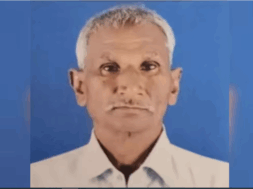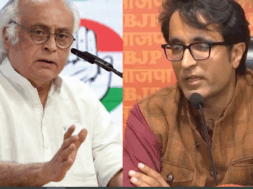
Israel: Massive protests force Netanyahu to pause ‘judicial overhaul’
Virendra Pandit
New Delhi: For the first time since it came into existence in 1948, Israel, the tiny Middle Eastern country of just nine million people, is facing its worst political crisis with Prime Minister Benjamin Netanyahu introducing a controversial “judicial overhaul” that would potentially make even the Supreme Court redundant—and against which not just opposition parties but the entire country is protesting for long.
Under extreme pressure from within and without, Netanyahu, who even fired his defense minister on the issue, however, pushed the ‘pause’ button for now, the media reported on Wednesday, but the massive countrywide protests are yet to cease.
The extent of protests can be gauged by the fact that not only has the Jewish nation almost come to a grinding halt, but even some of its embassies overseas also stopped functioning, even if temporarily.
Why, even Israel’s protector-benefactor America is angry with Netanyahu’s alleged stubbornness. When US President Joe Biden advised him to ‘walk away’ from judicial reforms, the Israeli PM responded by saying Israel rejected ‘pressure from abroad.’
“Israel is a sovereign country which makes its decisions by the will of its people and not based on pressures from abroad, including from the best of friends,” he said.
Netanyahu said his administration was striving to make reforms “via broad consensus”.
Biden told him that Israel “cannot continue” pushing ahead with deeply controversial judicial reforms, now on hold, that prompted months of unrest.
The US President’s comments on Tuesday came as the opposition accused Netanyahu of riding roughshod over Israeli democracy to strengthen his own power, leading to paralyzing protests and strikes across Israel.
“Like many strong supporters of Israel, I’m very concerned. … They cannot continue down this road, and I’ve sort of made that clear,” Biden told reporters in North Carolina.
“Hopefully the prime minister [Netanyahu] will act in a way that he will try to work out some genuine compromise, but that remains to be seen,” Biden said, adding he was not considering inviting the Israeli leader to the White House, at least “not in the near term”.
Speaking later in Washington, DC, he called on Netanyahu’s administration to drop the controversial judiciary law.
“I have known President Biden for over 40 years, and I appreciate his longstanding commitment to Israel,” Netanyahu said, adding the Israel-US alliance is unbreakable “and always overcomes the occasional disagreements between us”.
On Monday, Israel’s President Isaac Herzog called on Netanyahu and the ruling coalition to halt its judicial changes plan, “for the sake of the unity of the people of Israel, for the sake of responsibility”.
Tens of thousands of protesters took to the streets in cities across Israel in a spontaneous outburst of anger on Sunday after Netanyahu fired his Defense Minister Yoav Gallant for challenging his judicial overhaul plan. Gallant is the first senior member of the ruling Likud party to speak out against the reforms, saying the deep divisions were threatening to weaken Israel’s military.
On Monday, Israel’s largest trade union Histadrut announced a “historic” strike shutting down transportation, universities, restaurants, and retailers in protest against the judicial overhaul. Some government ministries, the country’s three biggest cities, banks, ports, and many other companies and agencies struck work, it said, adding that essential services such as hospitals and firefighters were allowed to operate.
All take-offs from Israel’s main airport, Ben Gurion Tel Aviv, were halted for several hours because of the strike. Workers at the country’s largest port in Haifa stopped working, some universities were shuttered and some of the country’s best-known retailers, including McDonald’s and the shopping mall chain Azrieli Group, announced closures.
Several Israeli embassies including the ones in Washington DC, London, and Paris, were closed on Monday after their workers and some diplomats joined the strike.
Hundreds of thousands of Israelis have been protesting for months against the planned judicial changes which would give the governing parties more control over Israel’s judiciary.
Israel’s former PM Yair Lapid urged Netanyahu to reverse the decision to fire Gallant, calling the move a “new low.” He wrote on Twitter that Netanyahu might be able to fire the minister but “cannot fire the people of Israel who are standing up to the insanity of the coalition.”
In a Facebook post on Monday, Israel’s President Isaac Herzog called on Netanyahu and his government to immediately pause the plans, saying “the eyes of the whole world are on you.”
“Deep concern hovers over the entire nation. Security, economy, society – everyone is threatened,” Herzog said in the statement.
Over two dozen mayors from across Israel declared a hunger strike over judicial overhaul on Monday.
Amid the protests, Netanyahu is under increasing pressure from his own party. Economy Minister Nir Barkat, Culture and Sports Minister Miki Zohar, and Diaspora Affairs and Social Equality Minister Amichai Chikli – all members of Netanyahu’s Likud party – also suggested that Netanyahu should stop the legislation.
Barkat, a former mayor of Jerusalem, suggested Netanyahu should “stop and recalculate” his overhaul plan, warning it has brought the country to the brink of civil war.
“The reform is necessary and we will do it – but not at the cost of a civil war,” he said.
Even some of the most forceful proponents of the reform appeared to be softening their stance. Justice Minister Yariv Levin, who has strongly advocated for the reform to be pushed through, opened the door to the possibility of a delay on Monday.
“I will respect any decision that Prime Minister Netanyahu makes regarding legal reform legislative procedures,” Levin, who is a member of the Likud party, said.
Under the judicial overhaul proposals, the government would have control over the appointment of judges, and parliament would gain the power to override Supreme Court decisions.
The government argues the changes are essential to reining in the Supreme Court, which they see as insular, elitist, and no longer representative of the Israeli people. Opponents say the plans threaten the foundations of Israeli democracy.














